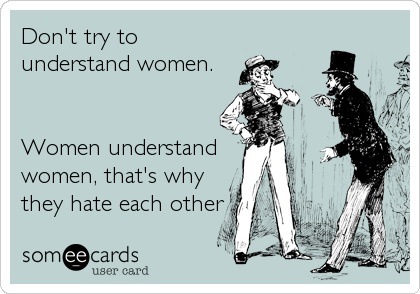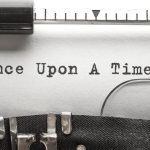Women are complicated creatures.
 I’ve never been more certain of that than after reading Dr. Daniel G. Amen’s book Unleash the Power of the Female Brain: Supercharging Yours for Better Health, Energy, Mood, Focus, and Sex
I’ve never been more certain of that than after reading Dr. Daniel G. Amen’s book Unleash the Power of the Female Brain: Supercharging Yours for Better Health, Energy, Mood, Focus, and Sex.
It really takes a special kind of dedication to get all of a woman’s hormones in balance. And guess what happens as soon as they’re balanced? They change!
I enjoyed learning about natural supplements women can use to help balance our every-changing hormones and feed our brains. I also found the discussion about the differences in the functions of men’s and women’s brains interesting.
The part of Dr. Amen’s book I enjoyed most was the explanation of “Automatic Negative Thoughts” or “ANTS.” ANTS are negative voices in our heads that can be controlled if identified, Amen wrote.
Amen identified Nine Types of ANTS that impact women’s cognitive processes and, therefore, their health. They are:
1. All or nothing
This is black-and-white thinking that leads women to think either fully positive or fully negative. For example, you ate dessert while you were on a diet, so you might as well just give up on the diet completely.
Amens encouraged women to recognize this thinking and realize that one negative happening does not mean giving up on a goal.
2. Using words like “always” or “never”
Life rarely works in these terms, so why do we think this way? If you tell yourself, for example, that you’ll never learn to do something, it may become a self-fulling proficiey. Instead, Amens said women should ban over-genralized words.
3. Focusing on negatives
You’ll actually be more unhappy if you find yourself dwelling on negatives. Thinking positively makes you happier.
4. Thinking with feeling
When you assume your feeling about something is true, you may not question it. It’s best to approach situations logically, looking for support or challenges to your view.
5. Guilt
Anyone who knows me well understands that I have enough guilt to get me straight into heaven. Using the words like “should” allows guilty feelings to build up and start to control your behavior. It’s important to let go of what you “should” or “could” have done because not doing so will cause you physical and mental health issues, Dr. Amen wrote.
6. Labeling
Giving yourself labels (usually negative ones) results in you believing the labels and creating behaviors to match them. If you find yourself labeling, try to flip the label instead or focus on something positive about yourself.
7. Fortune-telling
This is assuming the worst when you have no idea what actually will happen. This can result in stress and anxiety about something that is just as likely never to occur. You don’t know what will happen in the future. So, as I tell my children, just “make good choices.”
8. Mind-reading
You’re usually wrong when you think you know what people are thinking. Just avoid assumptions. If you really want to know—ask. Otherwise, don’t worry about it.
9. Blaming others
You are responsible for your own successes and failures. Don’t blame others for things you can control.
Understanding the ANTS alone made this book worth reading. Women often have unrealistic expectations of themselves and of each other. Just being aware of this negative self-talk can help put situations into context in a way that helps us think with logic instead of emotion alone.
Have you read this book or any of Dr. Amen’s others? What did you think?
Disclosure of Material Connection: Some of the links in the post above are “affiliate links.” This means if you click on the link and purchase the item, I will receive an affiliate commission. Regardless, I only recommend products or services I use personally and believe will add value to my readers. I am disclosing this in accordance with the Federal Trade Commission’s 16 CFR, Part 255: “Guides Concerning the Use of Endorsements and Testimonials in Advertising.”


